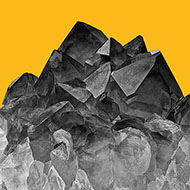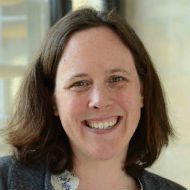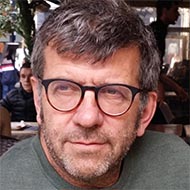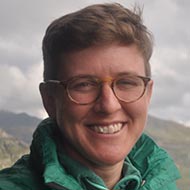 Studying Earth Sciences allows you to explore fundamental questions about the origin, development, and future of planet Earth. At Oxford the course combines knowledge from physics, chemistry and biology with geology, geography and palaeontology, and has a strong link between its world-class research and teaching of students. You will receive a rigorous, yet broad, scientific training in the way that our planet works. There is an emphasis on Geology, particularly in first year, though during later years the course also allows you to choose to pursue your specific interests from amongst a wide range of options. The course is taught through lectures, classes and tutorials, and also involves fieldwork.
Studying Earth Sciences allows you to explore fundamental questions about the origin, development, and future of planet Earth. At Oxford the course combines knowledge from physics, chemistry and biology with geology, geography and palaeontology, and has a strong link between its world-class research and teaching of students. You will receive a rigorous, yet broad, scientific training in the way that our planet works. There is an emphasis on Geology, particularly in first year, though during later years the course also allows you to choose to pursue your specific interests from amongst a wide range of options. The course is taught through lectures, classes and tutorials, and also involves fieldwork.
Earth Scientists at Univ form a very supportive and tight-knit community. Univ tutors value the importance of fieldwork very highly, and several academic fieldtrips are typically scheduled throughout the course of a student’s time at the College – the College has a generous array of study grants to ensure that all students are able to take part in these activities. There is also a specific Earth Science society in the College, Sollas, which arranges social events throughout the year for all Univ Earth Scientists.
There is a wealth of information about the Earth Sciences course structure, possible option choices, and admissions criteria on the University of Oxford’s main website, available at ox.ac.uk
Any undergraduate degree at Oxford provides you with a wide variety of transferable skills and therefore Univ’s students progress to a diverse range of careers. For some, their undergraduate degree leads to academic research, industrial research or teaching. For many, their future career, for instance in business, government or the charitable sector, is defined less by the subject they studied and more by the skills they acquired. Oxford’s Careers Service provides destination statistics for graduates.
Resources
If you are considering applying for Earth Sciences, a number of resources you might find useful to explore beyond the school curriculum can be found on Univ’s Staircase12 pages, including the Reading Bank and Resource Hub.
Also listen to Univ’s Tamsin Mather on BBC Radio 4’s The Life Scientific and on the BBC World Service’s The Forum The Unpredictable Planet: Understanding Volcanoes and Earthquakes






